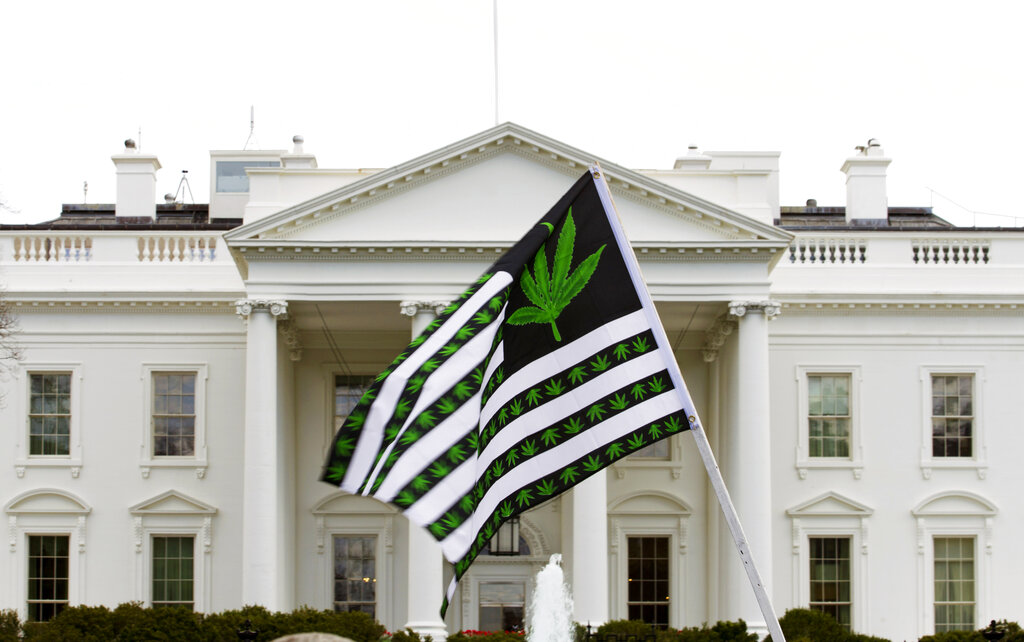In 2023, the legalization of recreational marijuana has received a mixed reaction in otherwise conservative states. Heading into 2024, this mixed reaction could signify what is to come in states like Florida.
On November 7, Ohio became the 24th state to legalize adult-use marijuana. With this law’s passage, 53 percent of Americans now live in a jurisdiction where recreational marijuana is legal.
Ohio’s Issue 2, also known as The Regulate Marijuana Like Alcohol Initiative, allows adults aged 21 and up to purchase, possess, and consume marijuana. The initiative also establishes the Division of Cannabis Control, a government department that will be responsible for setting up and regulating Ohio’s legal cannabis market.
The National Organization for the Reform of Marijuana Laws (NORML) worked very closely with the campaign during the last few months in order to gain as much support for the initiative as possible. Simon Dunkle, the Executive Director of the Ohio chapter of NORML, is pleasantly surprised at the passage.
“It’s just nice to have the progress after all the hassle and all the stuff over the decades. I think that light has always been there. It was just a question of when we were going to make it brighter,” Dunkle said.
Morgan Fox, NORML’s political director and a native Ohioan, said the time was right for Issue 2.
“Ohioans have been ready to make cannabis legal for adults for more than a decade. They were just waiting for the right vehicle to do so,” Fox said. “It answered most people’s concerns, [it] was able to cover most of the bases in terms of where we wanted to go in a regulatory sense after passage without potentially running afoul of lawsuits.”
The pushback by Republican lawmakers in Ohio was strong, and they were able to push the issue to a special election. Although the issue was presented in a non-presidential election year, Issue 2 passed with 56.97% of the vote. The issue’s success might be tied to the abortion debate. Michelle Rutter Friberg, the Director of Government Relations with the National Cannabis Industry Association, believes that one of the issues that brought more Ohioans to the polls was the question of whether abortion access would be protected, which appeared on the same ballot.
“Abortion is obviously an issue that is very polarizing and people feel very passionately about,” Friberg said. “That obviously brings people out.”
A special election can be the death knell of cannabis legalization, though, as was the case in Oklahoma with State Question 820. In a March special election, Oklahomans rejected State Question 820, which would have legalized recreational marijuana use by adults 21 and over. Rutter Friberg and Fox both believe that Oklahoma’s springtime special election contributed to its failure to pass.
“People that show up for special elections generally tend to be older and much more conservative. And those are the demographics that tend to support legalization the least,” Fox explained.
In the Oklahoma election, only 38% of the vote favored State Question 820. Opponents of recreational marijuana included Governor Kevin Stitt, Oklahoma Faith Leaders, and the Oklahoma Farm Bureau, none of whom responded to requests for comment.
According to Time Magazine, the Farm Bureau described the ballot initiative as a threat to rural communities. The Bureau blamed the marijuana industry for creating a “strain on our rural electric and our rural water utilities.”
It’s a longstanding debate in Oklahoma, which has a unique history with cannabis and legalization. For example, there are very low barriers to getting a license to sell marijuana. Porsha Riley, the Public Relations Manager with Oklahoma Medical Marijuana Authority, spoke to Oklahoma’s uniqueness.
“Several states require qualifying health conditions in order to get a patient license; Oklahoma does not. Many markets also cap commercial licenses, whereas our state does not,” Riley said.
Because of this low barrier to entry in Oklahoma and exploitation of the system, the state is now making the licenses harder to get. Oklahoma recently implemented a “rigorous license application review process.” Furthermore, the industry is finally reaching a point where it is well established enough that the state can put money towards regulations.
“[We’re] getting to a point where we’re boots on the ground, ramping up compliance and enforcement, and kind of reigning in the market,” Porsha Riley explained.
Meanwhile, Oklahoma is having problems with oversupply. A healthy cannabis market states that the ratio of 2 grams for every 1 gram demand is a healthy market or a ratio of 2:1. A study conducted by Cannabis Public Policy Consulting LLC for the Oklahoma Medical Marijuana Authority found that Oklahoma’s market is oversupplied by 32 times.
Because of the massive oversupply, Michelle Rutter Friberg and the National Cannabis Industry Association are getting reports that the extra is being used in illegal ways.
“They have way too much cannabis on hand for the number of patients that are in that state,” she said.
Freiberg went on to explain that reports are beginning to pop up about cannabis being grown in Oklahoma, and then transported over state lines for illegal sale. “There’s even been some stories recently about potentially even organized crime maybe getting involved.”
The Oklahoma Faith Leaders opposed State Question 820 because of these claims. According to Time Magazine, the Faith Leaders claimed that the marijuana industry has led to “foreign nationals, including Chinese, Mexicans and Russians…purchasing Oklahoma farm land illegally, bringing in labor and sex trafficking.”

Despite Oklahoma and other conservative states keeping recreational cannabis illegal, the majority of the US population is still in favor of legalized adult use. In a recent Gallup Poll, a record 70% of Americans think the use of marijuana should be legal. In the same poll, Gallup found that “majority support for legalization is found among all major subgroups, including by age, political party and ideology.”
Morgan Fox, with NORML, believes that conservative lawmakers in these states are legislating against public opinion.
“Over the last several years, opponents of legalization have effectively lost the hearts and minds of the American public,” he said.
With this public support and differing poll outcomes, legalization advocates believe they have the momentum they need in conservative states.
Florida’s legalization initiative is currently the most active, with Florida’s Supreme Court currently working through whether to allow the question of legalization to be on the 2024 ballot.
Steve Vancore, a spokesperson for Smart and Safe Florida, the organization behind the campaign, explained that the rules behind changing Florida’s constitution are very challenging.
“The Florida legislature has done a great job over the last decade of putting new laws in place to make it exceedingly difficult to do this,” Vancore said.
For the initiative to appear on the ballot, it must be aligned with a strict set of standards and receive at least 893,000 signatures; Smart and Safe got over one million. After complying with all of the strict standards, the initiative must be argued in front of Florida’s Supreme Court. According to Politico, the Justices seem to be in favor of the initiative after hearing the arguments in early November. As a Constitutional Amendment, the initiative would bypass Florida’s legislature, which is heavily Republican. For now, it’s just a waiting game.
“So we spent $30 million, $40 million to get the signatures, and we’re hoping for a ruling any week now from the court,” Vancore said. “We’ve had our oral arguments, we presented our briefs, and we’re waiting on a ruling from the court to allow us just to go to the ballot.”
Vancore said that the courts usually come back with a decision in late December or early January, and his alarm is set.








